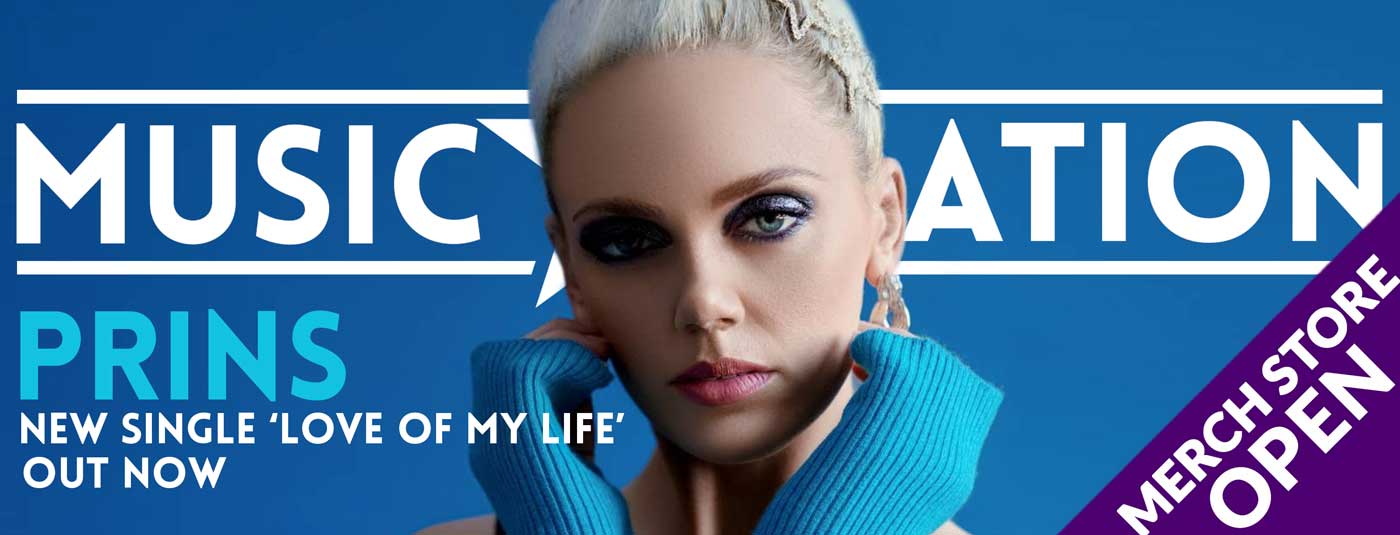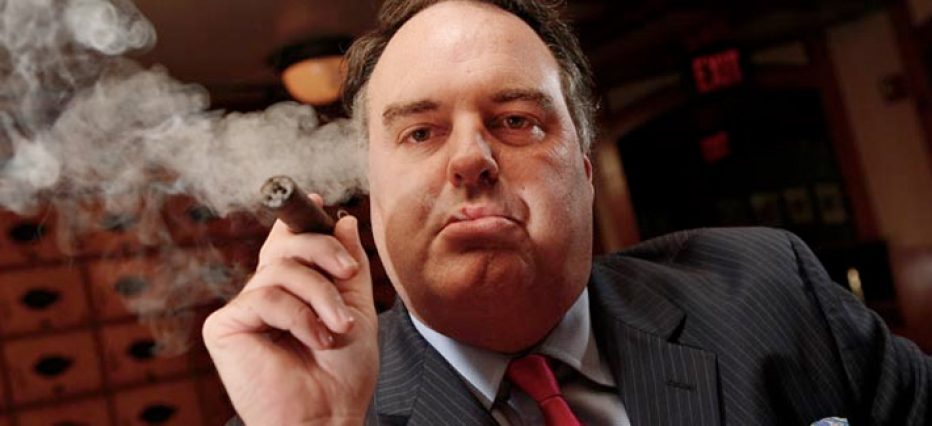THE RECORD LABEL EXEC
For The Record
So Dan, thank you so much for your time today. I can only imagine how busy you are. Actually I can’t really imagine. I have no idea what a president of a record label does let alone the president of two of the most famous record labels. So what does a typical week look like to you?
Airplanes. Studios. Boardrooms. Airplanes. Studios. Boardrooms. Very little sleep.
Do you live in one place Dan, or do you share your time between coasts or between countries?
I share my time. Every month I spend about two weeks in LA, and two weeks in New York, give or take. I just worked on the Beach Boys record so I was in LA for quite a bit of time doing that. It just depends on what’s happening record-wise.
That makes a lot of sense. So Dan, if you don’t mind me asking – please help me understand a little bit more. What are your primary responsibilities?
My primary responsibilities are the signing of acts, working with the artists, and the making of the records. That’s the function of my job. There are finance people, marketing, and promotion people that keep the business running.
My primary focus is to keep my team making records and overseeing that the records get turned in on budget and turned in on time. I think at EMI we really do work differently than some of the other labels. We work hand in hand with the artists while working on the record.
I was wondering about that. That wouldn’t be my typical assumption of what you would be doing. Is that normal or is this the way you’ve come up the ranks and what you are most comfortable doing?
I come from an artist background; I’ve played in bands my whole life. So I have a bit of an understanding of how artists think and work. Roger Faxon, who leads EMI, his philosophy is that it’s all about the artist and it’s all about the music. We are very transparent with everybody when we are signing. It’s not a secret to Greg Thompson — who’s a total badass who runs marketing and promotions for EMI in North America — it’s no secret to him when a record is done. I don’t walk in and hand it to him and say, “OK, go get this played on the radio.” He’s involved very early on, I’ve played him the demos and I’ve let him know about the artists. And frankly, when we are signing artists, I have those guys come in to meet them and help me close the deals too. They come in and they are very involved.
Good. So it’s a full team effort, a collaborative effort?
Yes, I feel it’s a collaborative effort. Look, I am not a radio promotion guy and Greg does not make records. Greg is really strong at promotions and I think that I’m strong at making records from my background of actually playing on them. But we both have an understanding of what the other one does, and why they’re good at it. So I think we complement each other. I don’t think that it does any good keeping people in the dark and then springing a record on them and then saying, “Now go break it.” That’s a bad thing.
I agree. I think that any music fan would agree with that statement Dan.
We also have created a system to help us ensure that we deliver artists the successful outcomes that we believe they deserve. It’s called the “Launch Process” that a woman named Ashley Burns runs. She is very much my right hand. From the day we do the deal with an artist, we start this very detailed launch process and we write a creative brief that covers every aspect of who they are as people and artists. It’s as if you were the artist and I say to you “Where do you envision your career going, who do you think you are like?” It’s just dialogue between you and us, and from there we come up with a comprehensive creative brief. Then we are able to show where you start and you can mark your progress along the launch of the record, and on through the course of your career. I mean, reaching the goals that you set out with the artist right from the beginning. It’s kind of a different way of doing things. I am friends with everybody that works in every other label and we all know each other and we all do things differently. I think this is a unique way to do something.
I really like hearing that. It seems a very holistic approach to artist development. You are making sure that everybody on the team is on the same page.
It is. I’d be lying to you if I said it was easy because it’s not easy.
No. You are talking about a lot of different competing wants and needs.
That’s exactly right and you know—look, you work at a company—you know there are certain people that have certain personality types that just can’t help themselves. It’s human nature.
Yep. I know what you mean. Say, you had mentioned your background in music. You were a highly regarded touring and session drummer. So how did you actually transition from being and artist into management? It’s got to be a fantastic story.
You know, the interesting thing is that I really started playing out live when I was thirteen and that was my main focus. I really wasn’t focused on school. I was always with a cover band and then one thing led to the other and I ended up doing all these different tours. I was always really interested in the business aspect of the band as well and interestingly enough; I became partners with Lars from Metallica. We had a record label for four years though we came from completely different musical backgrounds — it’s interesting how we drummers are often the glue. You know, there’s always somebody who doesn’t want to be bothered with the business and there’s always somebody who does want to be bothered with the business. If you drive in a van for 13 hours and you go to Wal-Mart and your record’s not in the store, I would call the president of the label and say “What the f***! We are out here living like dogs and you can’t even put our record in the store.”
So I literally toured for 10 years pretty much straight, no breaks and I think a lot of your clients probably have the same thing. I didn’t have a piece of the publishing. I didn’t have a piece of the record deal. I didn’t have a piece of the merchandise. I was a gun for hire—so I was at the mercy of whomever I was working for. When they wanted to go out, they’d go out. You know, some of the artists I was working with were making a massive amount of money in publishing and record revenue and I was making a salary that I felt at a certain point… I just thought when I am 50 years old; I don’t want to be at the whim of someone else. I want to be in control of my own destiny.
I hear you.
That’s honestly how it came about.
So you had this realization and then what? Is that when you started working with Lars?
You know, I was playing with Sheryl Crow at the time and I met a guy named Kenny McPherson who worked at Warner Chapell. I got to know him through another mutual friend of ours and I went to meet with him and talk to him. He offered me an internship for free where I would go into his office and he would buy me lunch. I would go through 50, 60, 70 cassettes, DAT’s, cd’s, and pick out the ones I thought he needed to pay attention to at the publishing company.
There wasn’t a position for me there but one of my best friends—who was one of Metallica’s managers—knew that Lars was starting this label and he interviewed me for the job and that’s how I got my first break. That’s really how it got started.
So from there, you slide over to EMI publishing and you move up through the ranks?
From Lars’ company, I went to EMI Music Publishing and I’ve been at EMI for about ten years since. The reason I ended up at the record company frankly was my boss at the publishing company ended up being the chairman of all of EMI. As a publisher, I was really involved in record making. He just knew my relationships with my artists and my love for making records. When he got offered the job to be the chairman of all of EMI, he asked me work at the record company with him. That was about 18 months ago.
Want the rest of this story? Read Part II here.
Dan McCarroll is the president of Capitol and Virgin Records. He joined EMI Music Publishing’s A&R team in 2001 and in 2007, he led the company’s East Coast A&R operations. Dan McCarroll had previously run the A&R department for The Music Company, the Elektra imprint formed by Lars Ulrich. Prior to that, he spent many years as a touring and session drummer, working with Sheryl Crow, Jon Brion, Aimee Mann, Michael Penn and Lloyd Cole among others.
This interview was originally published at: FOR THE RECORD | Ultimate Ears






